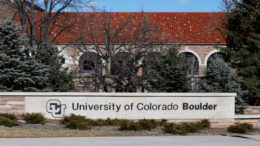Sole-finalist law goes into effect; state Supreme Court declines review of appellate ruling against Daily Camera
The Colorado Supreme Court will not review an appellate court’s reversal of a ruling against the University of Colorado regents for refusing to publicly disclose the names and applications of all six candidates interviewed for the president’s job that went to Mark Kennedy in 2019.








